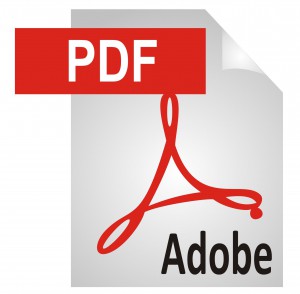Call for Contributions: Demo Session
The demo session at RTAS 2016 will provide a forum for researchers to give a demonstration of their work with concrete systems, tools and prototypes in all areas of real-time embedded technology and applications as part of the CPS Week joint poster/demo session. Authors are invited to submit short technical abstracts (up to 2 pages) describing what will be demonstrated and how the contributions will be illustrated interactively. In keeping with the spirit of the main symposium, submissions with an emphasis on system and application aspects are especially encouraged. Authors of papers accepted at RTAS’16 are welcome to propose a demo of their work.
[The WiP-and-demo proceedings are available here.]
Accepted demos
- TEMPO: Integrating Scheduling Analysis in the Industrial Design Practices
Rafik Henia, Laurent Rioux and Nicolas Sordon
 Paper
Paper
 Presentation
Presentation - Applications of the CPAL Language to Model, Simulate and Program Cyber-Physical Systems
Loïc Fejoz, Nicolas Navet, Sakthivel Manikandan Sundharam and Sebastian Altmeyer
 Paper
Paper
 Presentation
Presentation - Demonstration of the FMTV 2016 Timing Verification Challenge
Arne Hamann, Dirk Ziegenbein, Simon Kramer and Martin Lukasiewycz
 Paper
Paper
 Presentation
Presentation - Response-Time Analysis for Task Chains in Communicating Threads with pyCPA
Johannes Schlatow, Jonas Peeck and Rolf Ernst
 Paper
Paper
 Presentation
Presentation - Run-Time Monitoring Environments for Real-Time and Safety Critical Systems
Geoffrey Nelissen, Humberto Carvalho, David Pereira and Eduardo Tovar
 Paper
Paper
 Presentation
Presentation - Timing Aware Hardware Virtualization on the L4Re Microkernel Systems
Adam Lackorzynski and Alexander Warg
 Paper
Paper
 Presentation
Presentation - Predictable SoC Architecture Based on COTS Multi-Core
Nitin Shivaraman, Sriram Vasudevan and Arvind Easwaran
 Paper
Paper
 Presentation
Presentation - A Real-Time Low Datarate Protocol for Cooperative Mobile Robot Teams
Gaetano Patti, Giovanni Muscato, Nunzio Abbate and Lucia Lo Bello
 Paper
Paper
 Presentation
Presentation
Topics of interest
Topics of particular interest include, but are not limited to:
- Applications and case studies
- Runtime environment, OS, and middleware
- Adaptive systems
- Analysis, simulation, and debugging tools
- Cloud and distributed computing
- Composition and component-based systems
- Computer architectures and microprocessors
- Execution-time analysis (static, measurement-based, and probabilistic)
- Formal methods
- Hardware/software co-design
- Many-core systems
- Multi-criticality systems
- Multicore and GPU computing
- Power-, thermal-, and energy-aware computing
- Programming languages and compilers
- Real-time databases
- Scheduling and schedulability analysis
- SoCs, FPGAs, and reconfigurable systems
- Software engineering
- Storage systems
- Synchronization
- System synthesis and optimization
- Testing, validation, and certification
- Virtualization and isolation
- Wireless communications
Important Dates
Abstract and short paper submission deadline – Jan 23, 2016 at 23:59 GMT-12
Acceptance notification – Jan 29, 2016
Final version (abstracts and papers) – Feb 5, 2016
Demo session – Apr 12, 2016
Submission of Papers
This year, every author is required to submit two separate documents:
- A demo abstract that will appear in the main proceedings. These abstracts must include a conventional header with the title of the demo and the names and affiliations of the authors. The header must be followed by approximately 300 words (i.e. about half a page) that summarize in one or two paragraphs the research context and the specificity of the solution that will be demonstrated. To avoid doubling up the references and skewing the citation count, it is extremely important to note that these abstracts must *not* contain references nor acknowledgments! All references and acknowledgements will be removed from the document before its publication in the main proceedings.
- A short demo paper that will be made available online and at the conference. Demo papers should adhere to the IEEE 10-point, two-column conference format, and be 1 to 2 pages long, including all references and appendices. They should repeat and extend the information provided in the abstract. In addition, they must clearly describe what will be demonstrated and how the contributions will be illustrated interactively. If a demonstration requires special arrangements (in addition to a table, power, and wireless connectivity), please describe them clearly in the paper.
Abstracts and short papers must be submitted electronically in PDF. Submissions will be evaluated based on technical merit and innovation as well as the potential to stimulate interesting discussions and exchange of ideas at the conference.
Submission of demo papers and abstracts is closed.
By submitting a paper, the authors agree and confirm that, in case of acceptance, at least one author will register for the conference and present the demo in person. Instructions for preparing the final version of accepted demo papers and their presentation will be sent along with the notification. Authors of accepted demo papers are expected to give a brief presentation to the RTAS’16 audience followed by an interactive demo at the reception held on April 12, 2016.
Program Committee
Luís Almeida, University of Porto, Portugal
Loïc Fejoz, RealTime-at-Work, France
Daniel Lohmann, Friedrich-Alexander-Universität Erlangen-Nürnberg, Germany
Martina Maggio, Lund University, Sweden
Gabriel Parmer, George Washington University, USA
Insik Shin, KAIST, Korea
Marcus Völp, University of Luxemburg, Luxemburg
Dirk Ziegenbein, Bosch GmbH, Germany
If you have any questions, please contact the demo chair: Sophie Quinton

